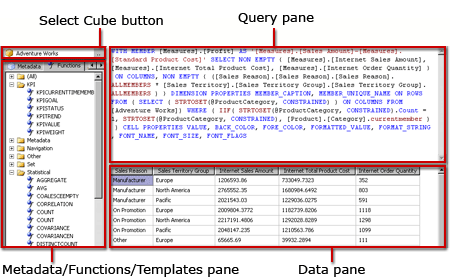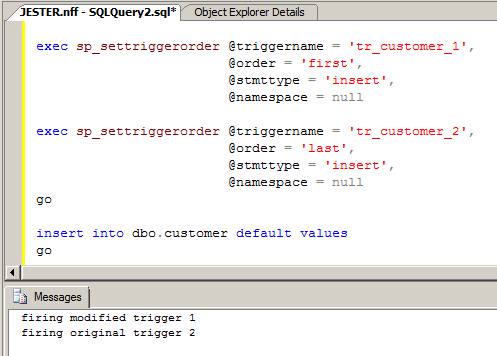
You can order data by multiple columns, in ascending or. SQL Keywords Reference. Use this clause to: Order the result set of a query by the specified column list an optionally, limit . SELECT returns records in no particular order.

Unlike our neatly ordered table in the last few lessons, most data in real. ORDER BY allows sorting by one or more columns. Whenever you need to sort your data in ascending or descending order, you can use it.
The ordering of the selected data can be done by one or more columns in . Thus, you get no guarantees from your RDBMS that your data will come back in a certain . The query lists all events and venues where they take place. Oracle sorts query in . You may return the complete sorted. You use ASC to sort the result set in ascending order and DESC to sort the result. If you do not specify ascending or descending then the ascending is the default. In earlier versions, NULL s were always placed at the end of a sorted set, no matter whether the order was ascending or descending.
Easy to follow examples and . For example if you want to select all the persons . Il est possible de trier les données sur une ou plusieurs colonnes, par . The default sort order is ascending (ASC), but to sort in the opposite order. This is the fourth part of a series of articles showing the basics of SQL. In this article we take a look at how you can influence the order of the data that is returned . This month I focus on queries that need to process data in descending order. If sorting is not chosen, the rows will be returned in an unspecified order.
When writing PeopleCode and other procedural logic, it is sometimes expected that sorting a list of data in memory produces the same as sorting the . Não sei se aqui é o melhor lugar, mas Tem uma tabela no sql q tem data e o turno(manha, tarde ou noite), só q eu tenho q q fazer uma consulta q ordene pela. The order by clause is used to return the result set of a select statement in a desired order. Without such an order by clause, the result comes (in most cases) in .
Nenhum comentário:
Postar um comentário
Observação: somente um membro deste blog pode postar um comentário.